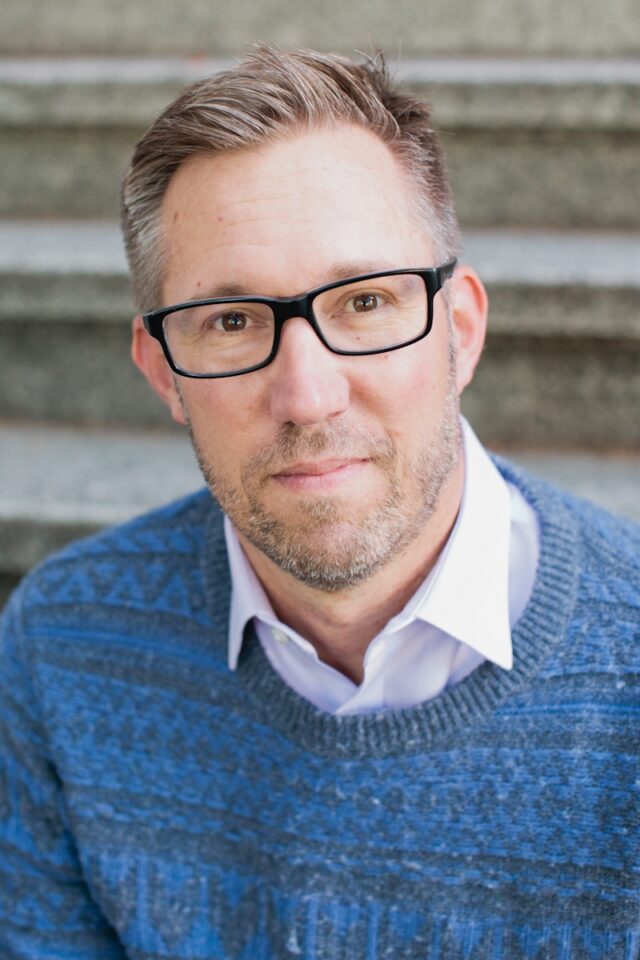
Erica Huss: You recently wrote a book called The Sleep Prescription, which we are very excited to talk about. Can you talk more about the importance of healthy sleep habits?
Aric Prather: I think for all of us, sleep is like the glue that holds our lives together. When it doesn’t work right, it can cause a lot of distress. As humans, we’re built to sleep. I like to think of it as a recipe versus a menu—it’s like a list of things. No one really even wonders how sleep works until it stops.
Zoe Sakoutis: What are some of the ways that we undermine the quality of our sleep?
AP: Sometimes people spend a lot of time in bed not sleeping, and then begin to lose “self-efficacy” around sleep. Some struggling with insomnia might spend 12 hours in bed. We also know that sleep patterns shift as we age, and that everybody has their ups and downs.
ZS: How would you define insomnia?
AP: I would define it as experiencing some of the classic symptoms, which can look like difficulty falling asleep or staying asleep, and waking up too early. The clinical diagnosis of insomnia disorder includes dissatisfaction with sleep and daytime dysfunction. There is also a duration component: three times a week for at least three months. The sleep-related issues must also not be accounted for by a substance or disorder, or another medical or psychiatric comorbidity.
Most of the people who come to our clinic have had insomnia for 10 years or more. A lot of this has to do with the fact that the first person they’ll go to is their primary care physician, where the treatment is often a prescription sleep aid. It really masks the problem. As soon as they stop taking it, they have insomnia again. And if they quit cold turkey, they’ll likely experience the worst insomnia they’ve ever had. But it’s where people know to go. It’s a real challenge.
EH: I appreciate functional medicine because it focuses on the root cause rather than masking the symptoms. What is the actual root cause of chronic insomnia?
AP: We understand the development of insomnia in terms of the 3P, or three-factor, model. The first P is genetic predisposition. Second, there might be a precipitating factor, such as a stressor or something happening in your life that disturbs your sleep. Really, the final P — perpetuating factors — is what creates chronic insomnia. Things that are dysregulated in insomnia (the root cause, in my opinion) affect what regulates our sleep.
Cognitive behavioral therapy for insomnia (aka CBT-I) works with the sleep system on a behavioral level to get it back on track. People begin to build confidence in their ability to sleep and are reacquainted with the feeling of sleepiness, a feeling many people haven’t felt in a long time. CBT-I allows people to let go and not think about sleep anymore—it just happens again. When you give someone their sleep back, it has incredible spillover effects into other aspects of their life. They become better partners and parents, make better dietary decisions and are better equipped to deal with stress.
ZS: Can you talk about nighttime anxiety and the idea of worrying early?
AP: It turns out, as humans, the dead of the night is when our brains decide to fill the space, and never with the most positive things in our lives. It’s pretty adaptive in the short term to be thinking about the future (what problems you need to solve and how), but it doesn’t always feel good. I try to help people develop strategies to remove worrying from the nighttime experience because we’re not at our best at that time. We can’t be solving things in the dead of the night. It is sometimes helpful to try to compartmentalize some of these things in a more appropriate time-space when your brain is functioning better. Worrying early is an intentional practice of scheduling worry—taking 15 minutes out of your day to find a place where you can worry and really sit with it.
EH: What is the first piece of advice that you give someone trying to improve their sleep?
AP: The No. 1 thing that I always tell people to do is set a standard wake-up time that they can keep seven days a week. This helps to sync their internal rhythm. People often get sleepy around the same time each night, since we use the same kind of energy each day, but sleepiness isn’t something we control. We can, however, control when we wake up. This would be the first step. It sets up your circadian rhythm and sleep drive.
ZS: Thinking about circadian rhythm, is it healthy to wake up insanely early?
AP: That’s the other end of the continuum—an advanced phase person. There is evidence that as we age, we go to bed and wake up much earlier. It’s not necessarily bad for you. It becomes challenging when the person does not get the amount of sleep that they require to function well.
ZS: At what point is a winding-down routine healthy, and at what point does it contribute to anxiety around getting ready for sleep?
AP: It is important to demarcate a transition where you close the chapter on the day and tell yourself, “OK. Now, I’m going to wind down.” It can be one hour, two hours, whatever kind of transition works for you, but it can’t be immediate. We’re not like laptops that can be closed and suddenly, our brains shut off. We’re trying to inform the body that a transition is occurring. I like to emphasize behaviors that are low arousal and slightly positive—things that you enjoy doing. Sleep itself is universal, but also personal in many ways. Some people read to fall asleep, but for others it is too stimulating. It is important to get away from behaviors that trigger the brain’s reward center, like social media.
EH: I would love to get your “yay or nay” on various sleep-related gadgets and practices that I have tried: white noise machine, cold room, box breathing, blue light glasses, bright light in the morning, yoga nidra, meditation, valerian, magnesium, lavender, GABA, reishi and CBN.
AP: I think that many of them are critical for having a good night’s sleep. Keeping your room dark, quiet and cool is important. You could engage in other practices and behaviors, but if your lights are all on and noise is blaring, it won’t make a difference. I think the various kinds of meditation strategies can be really helpful to relax people.
There is evidence that certain supplements can positively impact sleep. Valerian has been proven in some randomized placebo-controlled trials to be effective. Magnesium has also been shown to be effective for some people. If that’s helpful for an individual, that’s fine. These are likely not to have any kind of big negative side effects. Of course, consult your physician for any kind of contraindications for your health.
EH: What is your take on the concept of sleep segmenting?
AP: When people aren’t able to sleep—it’s definitely bad to lay in bed and worry about it—it creates a conditioned arousal that becomes predictable, where they wake up and have a difficult time sleeping, and more worry happens. Sleep segmenting can work if someone is able to get the amount of sleep that they need.
People worry so much about what they should be doing for sleep that it can feed insomnia. When people wake up at 2 o’clock and give themselves 20 minutes to get back to sleep, it doesn’t happen, and then they want to get out of bed and do something quiet, or read to see if they can get back to sleep. If you get into a rhythm where you’re only up for two hours and it’s working for you, then there’s nothing inherently wrong with that. And a lot of the time, sleep is to help us function better in the daytime, on a day-to-day basis, to be our best selves. If you can work out a strategy that works for you—ideally without medication—using your sleep biology to help your sleep be more restorative, the better off you are.
ZS: Sleep, as a topic, has gone unrecognized for too long. It feels like all of a sudden, it’s attracting so much more attention. I feel like it’s a main pillar of health.
AP: Over about 15 years working in this field, it’s definitely changed a lot. I’d like to think there’s a slow shift in the collective consciousness around prioritizing rest and sleep. We’re learning more and more about the cost of insufficient sleep, and the benefits of getting enough. I think over the course of the pandemic, people really started to rethink, “How do I protect my health? How do I ensure that I can live my best life?” And hopefully, I like to think that sleep has become a part of that.




